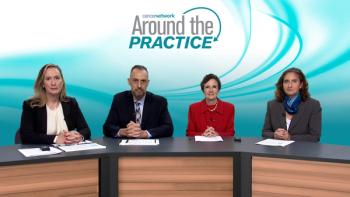
Virginia Kaklamani, MD, presents the case of a 60-year-old patient with stage III HER2+ mBC with brain metastases.

Your AI-Trained Oncology Knowledge Connection!


Virginia Kaklamani, MD, presents the case of a 60-year-old patient with stage III HER2+ mBC with brain metastases.
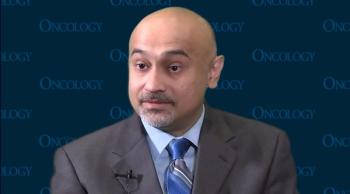
Ongoing clinical trials are exploring the cytoreductive properties and immunogenic potential of stereotactic radiation in the treatment of patients with metastatic kidney cancer, according to an expert from the University of Texas Southwestern Medical Center.
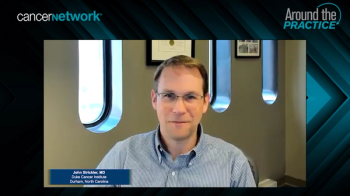
John Strickler, MD, details the design and outcomes of the MOUNTAINEER trial investigating the combination treatment of tucatinib with trastuzumab for HER2+ metastatic colorectal cancer.
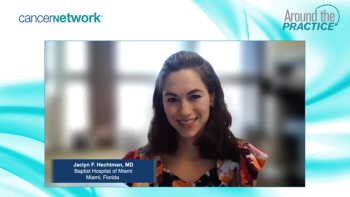
A panel of expert oncologists discusses advances in the treatment of BRAFV600E metastatic colorectal cancer and also reviews novel targets being investigated in the setting of metastatic colorectal cancer.
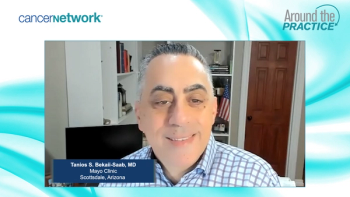
Experts offer insights on the appropriate treatment for patients with HER2-positive metastatic colorectal cancer.
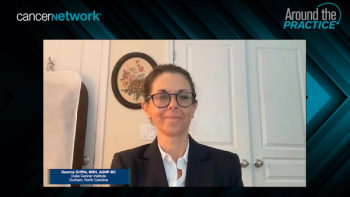
Deanna Griffie, MSN, AGNP-BC, shares how common toxicities in patients with HER2+ mCRC being treated with trastuzumab deruxtecan are treated at her clinic.
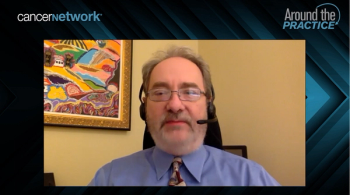
A video preview for an upcoming program reviewing clinical trial data and updates in the multiple myeloma treatment landscape over the last year.
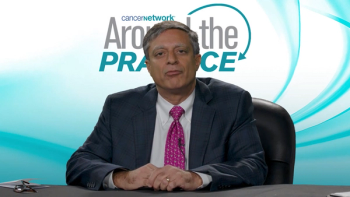
A video preview for an upcoming expert panelist discussion of recent updates in the multiple myeloma treatment landscape.
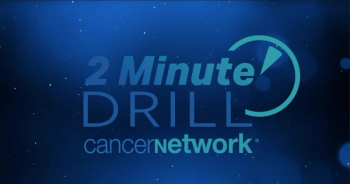
Following the 2022 ASH Annual Meeting and Exposition, Nakhle Saba, MD; Lindsey Roeker, MD; Javier Pinilla, MD, PhD; and Catherine C. Coombs, MD, participated in a rapid-fire question-and-answer 2-Minute Drill program, hosted by CancerNetwork®. Topics ranged from most exciting data in chronic lymphocytic leukemia and lymphoma, as well as what research needs more follow-up.
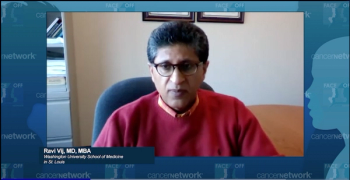
Ravi Vij, MD, MBA, suggested that 4-drug regimens may be a new standard for frontline therapy in newly diagnosed multiple myeloma, as oncologists await trial readouts from ongoing clinical trials.
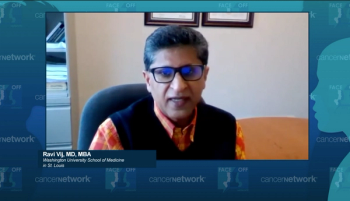
Ravi Vij, MD, MBA, offered additional information about the use of various regimens aimed to treat patients with high-risk, newly diagnosed multiple myeloma, that were read out at the 2022 ASH Annual Meeting.
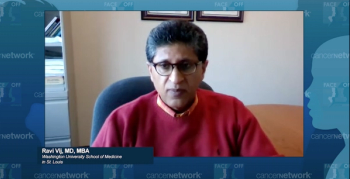
Ravi Vij, MD, MBA, discussed updated analyses of the phase 3 SWOG S0777 trial, supporting the use of bortezomib, lenalidomide, and dexamethasone in untreated patients with multiple myeloma who do not plan on receiving immediate autologous stem cell transplant.
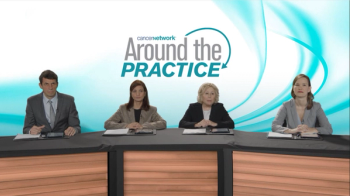
Susan O’Brien, MD, provides a brief overview of chronic lymphocytic leukemia (CLL), and Seema Ali Bhat, MD, explains the mechanism of BTK inhibitors.
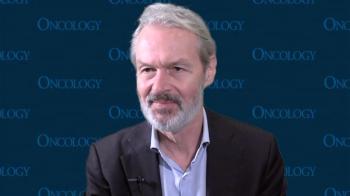
“Much more research” is needed to advance the adjuvant treatment of patients with kidney cancer, according to an expert from the Royal Free London NHS Foundation Trust.
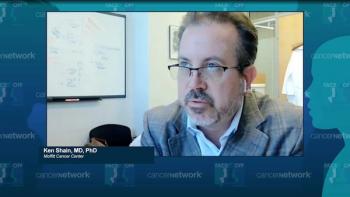
Ken Shain, MD, PhD, pinpoints the critical, lingering gaps in patient access to cellular immunotherapies in multiple myeloma.

Ken Shain, MD, PhD, provides an overview of developments on the horizon in multiple myeloma.

Ken Shain, MD, PhD, spoke about the dramatic impact of novel immunotherapies in the multiple myeloma treatment landscape, as well as other updates from the 2022 ASH Annual Meeting and Exposition.

Ken Shain, MD, PhD, discussed some of the research in multiple myeloma that was featured in a recent FaceOff program, and how these recent advances may change the standard of care.
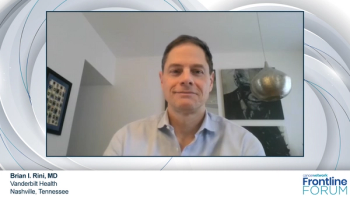
Before closing out their discussion on the evolving treatment landscape of advanced renal cell carcinoma, Matthew Campbell, MD, MS, and Brian Rini, MD, highlight clinical trials in the adjuvant setting.
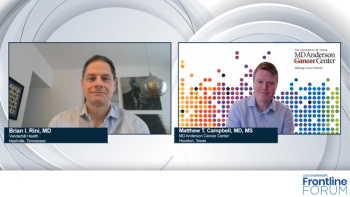
Shared insight on the results from triplet therapy–centered clinical trials in advanced renal cell carcinoma and how these might inform treatment strategies as the paradigm continues to evolve.
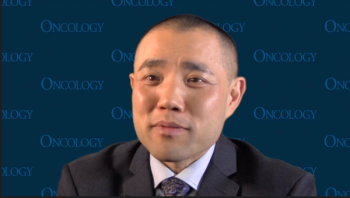
In a conversation during the 2022 American Society of Hematology Annual Meeting, an expert from the University of Texas MD Anderson Cancer Center, spoke to how treatments have improved for patients with mantle cell lymphoma.
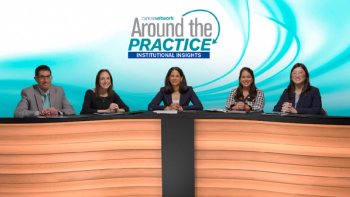
A brief review on how best to identify, delay, or avoid brain metastases in patients diagnosed with metastatic HER2+ breast cancer.
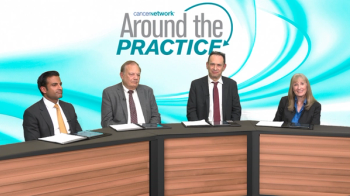
Centering discussion on a patient scenario of stage II HR+ breast cancer, expert panelists consider how they would approach workup and selection of therapy.

Having outlined available treatment options for patients with HER2+ metastatic breast cancer, expert panelists share which factors help to select optimal therapy.
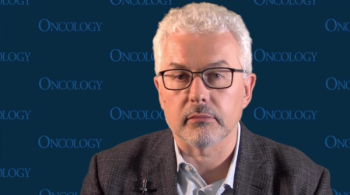
Momelotinib continues to show benefit in reducing splenic symptoms and anemia in myelofibrosis in the second-line setting, making it a likely first treatment choice, according to an expert from the University of Texas MD Anderson Cancer Center.

Heather McArthur, MD, describes what treatment options she would consider in the third-line setting for HER2+ mBC.
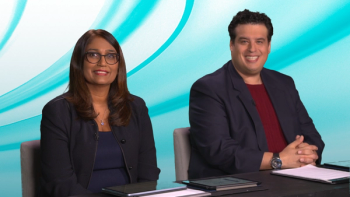
Before closing out their review on the management of multiple myeloma, panelists consider disparities in care and share how these barriers are being addressed.

Andrew Brenner, MD, explains when physicians should screen patients with HER2+ breast cancer for brain metastases.
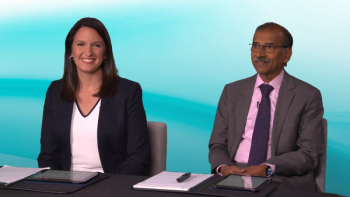
A comprehensive review of novel therapy being investigated in the setting of relapsed/refractory multiple myeloma to expand the bispecific antibody and CAR T-cell therapy armamentarium.
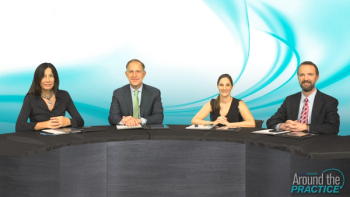
The panel shares some unmet needs in the multiple myeloma treatment landscape and exciting developments on the horizon.